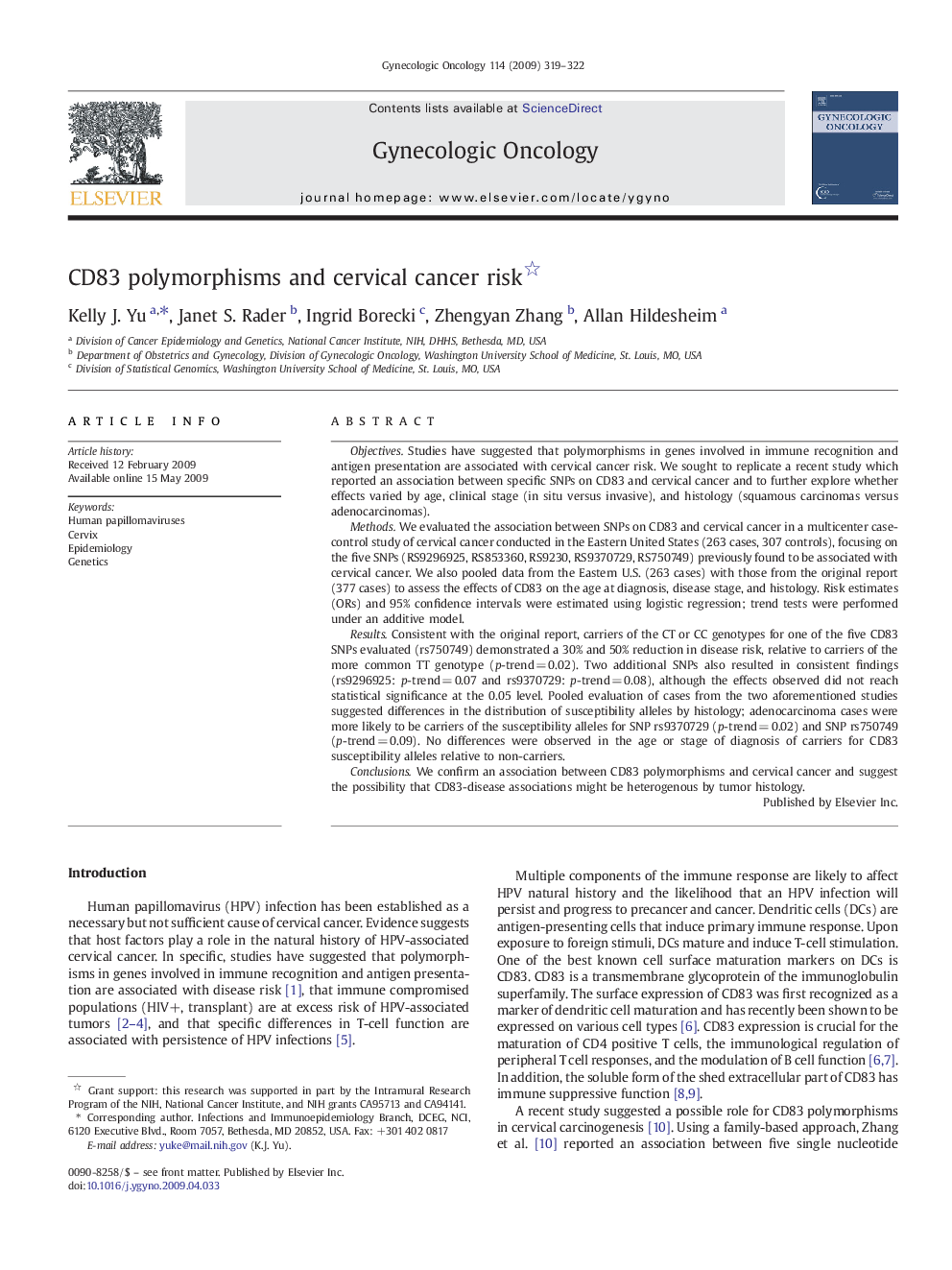| Article ID | Journal | Published Year | Pages | File Type |
|---|---|---|---|---|
| 3944269 | Gynecologic Oncology | 2009 | 4 Pages |
ObjectivesStudies have suggested that polymorphisms in genes involved in immune recognition and antigen presentation are associated with cervical cancer risk. We sought to replicate a recent study which reported an association between specific SNPs on CD83 and cervical cancer and to further explore whether effects varied by age, clinical stage (in situ versus invasive), and histology (squamous carcinomas versus adenocarcinomas).MethodsWe evaluated the association between SNPs on CD83 and cervical cancer in a multicenter case-control study of cervical cancer conducted in the Eastern United States (263 cases, 307 controls), focusing on the five SNPs (RS9296925, RS853360, RS9230, RS9370729, RS750749) previously found to be associated with cervical cancer. We also pooled data from the Eastern U.S. (263 cases) with those from the original report (377 cases) to assess the effects of CD83 on the age at diagnosis, disease stage, and histology. Risk estimates (ORs) and 95% confidence intervals were estimated using logistic regression; trend tests were performed under an additive model.ResultsConsistent with the original report, carriers of the CT or CC genotypes for one of the five CD83 SNPs evaluated (rs750749) demonstrated a 30% and 50% reduction in disease risk, relative to carriers of the more common TT genotype (p-trend = 0.02). Two additional SNPs also resulted in consistent findings (rs9296925: p-trend = 0.07 and rs9370729: p-trend = 0.08), although the effects observed did not reach statistical significance at the 0.05 level. Pooled evaluation of cases from the two aforementioned studies suggested differences in the distribution of susceptibility alleles by histology; adenocarcinoma cases were more likely to be carriers of the susceptibility alleles for SNP rs9370729 (p-trend = 0.02) and SNP rs750749 (p-trend = 0.09). No differences were observed in the age or stage of diagnosis of carriers for CD83 susceptibility alleles relative to non-carriers.ConclusionsWe confirm an association between CD83 polymorphisms and cervical cancer and suggest the possibility that CD83-disease associations might be heterogenous by tumor histology.
